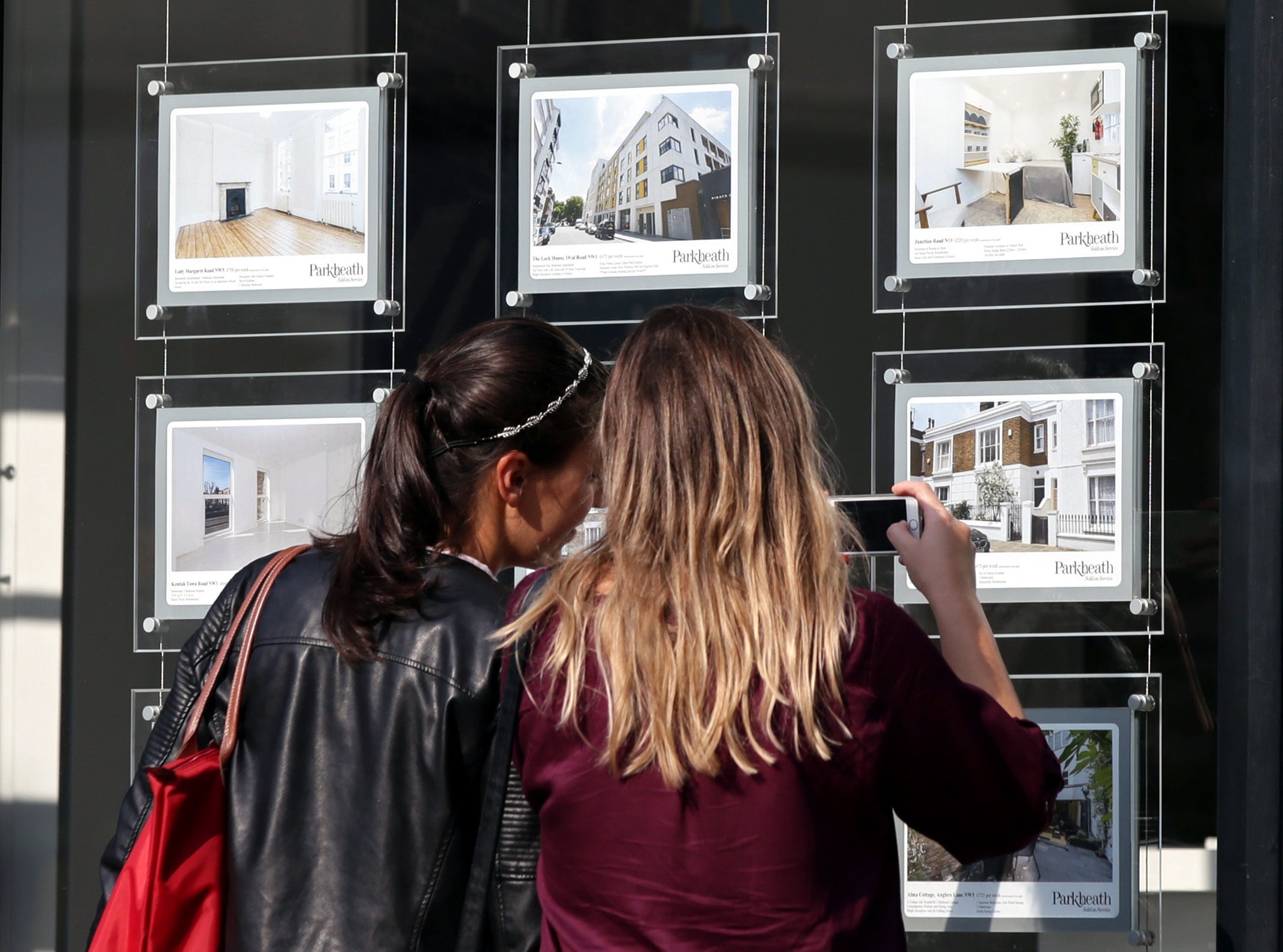Gap between housing market demand and supply is widest since 2013 – surveyors
The growing gap between new buyer inquires and new instructions from sellers means the mis-match is at its widest since November 2013.

Your support helps us to tell the story
From reproductive rights to climate change to Big Tech, The Independent is on the ground when the story is developing. Whether it's investigating the financials of Elon Musk's pro-Trump PAC or producing our latest documentary, 'The A Word', which shines a light on the American women fighting for reproductive rights, we know how important it is to parse out the facts from the messaging.
At such a critical moment in US history, we need reporters on the ground. Your donation allows us to keep sending journalists to speak to both sides of the story.
The Independent is trusted by Americans across the entire political spectrum. And unlike many other quality news outlets, we choose not to lock Americans out of our reporting and analysis with paywalls. We believe quality journalism should be available to everyone, paid for by those who can afford it.
Your support makes all the difference.The gap between the number of house hunters coming to market and the choice of properties for sale is at its widest since 2013, according to surveyors.
The mis-match between buyers and sellers is putting an upward pressure on house prices.
A net balance of 32% of property professionals noted an increase in new buyer inquiries during May, according to the Royal Institution of Chartered Surveyors (Rics).
But the supply of homes fell further, with a net balance of 21% of surveyors reporting a fall in the number of new property listings.
The growing disparity between new buyer inquires and new instructions from sellers means the mis-match is at its widest since November 2013, Rics said.
The principal drivers supporting demand will remain in place even after the expiry of the stamp duty holiday
Against this backdrop, the upward pressure on house prices intensified, with 83% of professionals noting an increase rather than a decrease, up from 76% the previous month.
All parts of the UK continue to display strong feedback regarding house price growth, with exceptionally sharp readings being posted in Northern Ireland the South West and North West of England, and Wales Rics said.
It also suggested that the pipeline of available properties could improve over the coming months, based on the level of market appraisals being undertaken.
Growth in property sales may soften a little in the coming three months once the stamp duty holiday is tapered from July to September.
But a balance of 64% of surveyors expect house prices to increase rather than fall in the next 12 months.
Simon Rubinsohn, Rics chief economist, said: “Ending a tax break always has the potential to be a little disruptive for a market but with the economy performing better than could have been expected even a short while ago and the cost of money still at rock bottom levels, the principal drivers supporting demand will remain in place even after the expiry of the stamp duty holiday.”